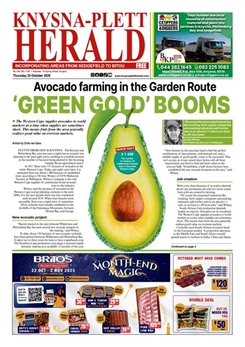NATIONAL NEWS - One way of defining success is that it is about having options; the more choices you have, the more control you have over your own destiny.
Conversely, failure is characterised by being highly restricted in what you can do. It is when your future is largely out of your control.
South Africa’s economy is not quite at total failure stage yet. We would reach that point if we ever had to approach the International Monetary Fund (IMF) for assistance and then have to abide by whatever conditions they attached to a loan – but that is not a likely near-term scenario.
The country is, however, facing something of a last-chance scenario. After the disaster of the Zuma administration and the destruction it caused to South Africa’s governance, its economy and its institutions, the realistic choices from here are limited.
Renewal
In last week’s budget speech, finance minister Tito Mboweni had to emphasise the need to renew economic growth. The only way in which tax revenue can be sustainably increased, and national debt brought down, is by growing the economy faster and creating more jobs.
This is not a new message. Every budget speech for at least the last half a decade has made the same point.
Mboweni’s comments were therefore neither unexpected nor ground breaking. The question is, what are policymakers actually going to do?
Speaking at a post-budget analysis hosted by Deloitte, Nedbank economist Busisiwe Radebe pointed out that there aren’t many levers to pull.
“There are only three ways to stimulate growth in the economy,” she argued. “One way is to make money cheap. The second is for government to spend money as it did in 2008 and 2009. And the third is through structural reforms.”
Weighing up the options
The way to make money cheap is by dropping interest rates. However, this is not something that can be done in isolation.
“The minute you drop interest rates, you feel the impact of the carry trade,” Radebe pointed out. “People will take their money out of the country to where they can get a higher rate of return. That creates a cycle of a weaker rand, and higher inflation. We can’t do that because inflation is a tax on the poor.”
Government spending is also not a realistic path of action.
“There is no money, so we can’t do that,” Radebe said. “We would have to borrow money to spend extra in the economy, so that option is not open to us. The credit rating agencies wouldn’t like that at all.”
The last chance
Which leaves only one viable policy response – to fix and reform the economy.
“It’s the only option available to us,” Radebe argued. “Instead of taking the little pie we have and slicing it up into even smaller pieces, we have to bake more pies.”
Judging by the stance taken by President Cyril Ramaphosa in the state of the nation address and by Mboweni in his budget speech, they both appreciate this. Current economic policy is not working. It is producing levels of economic growth that are simply not high enough.
The reality is that continuing with these same policies can only continue to produce the same outcomes. Government therefore has to reform the economy into one in which it is easier to start a business, is more welcoming of skilled immigrants, and does not place a regulatory burden on companies that outweighs its benefits.
Red carpet
“We need to be more concerned about the jobs we don’t have and the businesses we couldn’t create due to onerous government rules,” said Radebe. “We must make it easier for people to open businesses. If you are a job creator in this country, we must roll out the red carpet for you.”
This is the reality that Ramaphosa and Mboweni have appeared to acknowledge. It is, in fact, the reality also acknowledged by the National Development Plan that is still, officially, government policy.
Until now, however, the political will to actually do something about it has been lacking. The hope is that a strong election victory for the ANC will give Ramaphosa, Mboweni and those who share their intentions the space to finally act.
If they can’t, or if they don’t, South Africa really will be out of options.
















